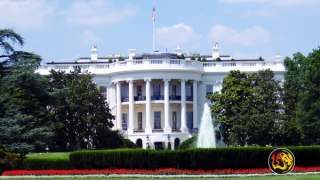
By Brett Rowland | The Center Square
(Worthy News) – President Donald Trump’s trade team sent letters to foreign nations facing reciprocal tariffs seeking their best trade offers by Wednesday as the administration looks to make deals.
The letter comes after a court ruling last week that raised questions about the legality of Trump’s tariffs.
White House Press Secretary Karonline Leavitt confirmed the details of the letter during a briefing on Tuesday. The Office of the U.S. Trade Representative Jamieson Greer sent the letter to trading partners “to give them a friendly reminder that the deadline is coming up,” she said.
“They need to cut deals with the United States of America,” Leavitt said. “As you’ve all seen, he’s unafraid to use tariffs to protect our industries and protect our workers, but he wants to see these tailor-made deals be signed.”
Leavitt said deals would be made “very, very soon.”
July 8 is the end of the 90-day pause on the reciprocal tariffs that Trump imposed in April on nearly all U.S. trading partners.
On April 2, dubbed “Liberation Day” by the president, Trump announced reciprocal tariffs on scores of other nations, but suspended those higher rates for 90 days while his trade team went to work. Since then, Trump’s team has announced a limited trade deal with the United Kingdom and tariff truce with China while talks continue.
Those “Liberation Day” tariffs face legal challenges from states and small businesses.
A three-judge panel on the U.S. Court of International Trade unanimously ruled last week that Congress did not give the president tariff authority under the International Emergency Economic Powers Act of 1977. The court gave Trump 10 days to unwind all the tariffs he issued under IEEPA. The administration appealed that decision and asked for an emergency stay. The appeals court granted that request, putting the Court of International Trade ruling on hold while the appeal continues.
In his second term, Trump has made tariffs the centerpiece of his foreign and domestic policy efforts. He has repeatedly announced tariffs, only to suspend them days or sometimes hours later. It started in February when Trump threatened to put 25% tariffs on Canada and Mexico. Trump later reversed course after reaching limited deals with those neighboring countries.
The most significant switch was on his “Liberation Day” tariffs on April 2, when he announced higher reciprocal tariffs on dozens of nations. Seven days later, he suspended those higher rates for 90 days to give his trade team more time to make deals. After a weekend of talks in Geneva, he also backed off 145% tariffs on China. So far, Trump has kept a 30% tariff on imports from China and a 10% baseline tariff for all imports.
Economists, businesses and some publicly traded companies have warned that tariffs could raise prices on a wide range of consumer products.
Trump has said he wants to use tariffs to restore manufacturing jobs lost to lower-wage countries in decades past, shift the tax burden away from U.S. families, and pay down the national debt.
A tariff is a tax on imported goods paid by the person or company that imports the goods. The importer can absorb the cost of the tariffs or try to pass the cost on to consumers through higher prices.
Copyright 1999-2026 Worthy News. This article was originally published on Worthy News and was reproduced with permission.
Latest News from Worthy News
Several Christian families in Pakistan’s Punjab province were recovering from injuries Sunday after what they described as “targeted attacks” by suspected Islamic extremists, reflecting broader pressure on Christians and other minorities in the Muslim-majority nation.
Portuguese voters headed to the polls Sunday in a high-stakes presidential runoff despite deadly storms that have battered parts of the country, with left-leaning former Socialist leader António José Seguro projected to defeat nationalist challenger André Ventura, according to exit polls.
A Christian pastor detained in Nicaragua since July 2025 has been released from prison but placed under house arrest along with five other Christian believers, Worthy News established on Thursday.
An injured Christian pastor in eastern India says recalling Bible verses gave him strength to survive hours of brutal abuse by a Hindu mob that accused him of converting Hindus to Christianity.
U.S. forces carried out five sets of precision strikes against Islamic State targets across Syria between Jan. 27 and Feb. 2, the U.S. military’s U.S. Central Command announced Wednesday.
U.S. forces carried out five sets of precision strikes against Islamic State targets across Syria between Jan. 27 and Feb. 2, the U.S. military’s U.S. Central Command announced Wednesday.
U.S. Special Envoy Steve Witkoff announced on Feb. 5 that Ukraine and Russia have agreed to exchange 314 prisoners, marking the first such swap in five months and the most tangible outcome yet from U.S.-brokered talks held in Abu Dhabi. The exchange followed multiple days of trilateral negotiations involving delegations from Washington, Kyiv, and Moscow.






